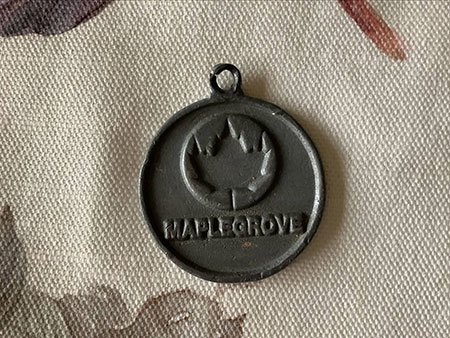38 Years Clean and Counting
The first time Avella tried cocaine she says she knew she was addicted.
“That was it. Right away cocaine grabbed a hold of me like nothing else I’d ever experienced,” says Avella, a retired nuclear medicine tech who recently celebrated 38 years of recovery.
Avella first tried cocaine in 1982. Over the course of two years, she says she went from snorting to injecting cocaine. A highly addictive and dangerous drug, cocaine increases levels of dopamine in the brain. Known as the “feel-good” hormone, dopamine is responsible for the brain's reward system causing feelings of elation or wellbeing. Repeated use of cocaine disrupts the brain’s reward center, which requires higher and stronger doses of the drug to get the same effect. According to the National Institute on Drug Abuse, about 1.3 million Americans became addicted to cocaine and nearly 20,000 died from cocaine overdose in 2020.
Avella says she was completely controlled by her addiction. “I hated who I’d become,” she says. “I didn’t recognize that person. I was a total physical and emotional wreck spiraling out of control.”
Finally, in 1984 she reached a point where she had to decide – lose her job or get into treatment. She credits an enlightened physician division head and a close co-worker for helping her find recovery. They confronted her and helped her see she needed treatment.
“Back then, substance use disorder wasn’t viewed as the illness it is today. It wasn’t common for workplaces to connect employees with treatment when they were in trouble,” says Avella. “I’m fortunate to have worked in healthcare with smart people who recognized I needed help. It was a turning point in my life.”
Her employer offered her a deal – complete 30 days of residential treatment and one year of outpatient care or lose your job. She accepted the terms and started treatment at Henry Ford Maplegrove Center.
“I absolutely loved my job. It was my independence. My identity,” she says. “To save it, I chose treatment. Believe me, I tried to get out of it. I tried to convince them to let me do outpatient only, but that wasn’t in the deal. They knew what I needed and stuck to it.”
Avella kept her word and completed 30 days of inpatient treatment, one month of individual therapy, and one year of group therapy. She credits group therapy with helping her realize that she wasn’t alone in her struggle. In fact, she found it so helpful she completed a second year.
“I loved everything about group therapy,” says Avella. “That’s where you really get to know people and realize you are not alone and that others are going through the same things you are.”
During group therapy, Avella went through a difficult divorce and other big life changes. “If I hadn’t had my therapist and members of my group, I’m not sure I would have come through those obstacles without relapse. They were a fabulous support system,” she says.

Avella came out of treatment with a new life philosophy, which she says has helped her stay clean for more than 38 years. “The things that keep me motivated are love, hate, and fear. And every day those three things keep me clean. Hate motivates me because I hated who I was when I was using. I don’t ever want to be that person again. Love – I love my life now and myself. And fear, that’s the big one for me because I know If I take one hit, I’ll go right back to where I was.”
In 2019, Avella retired from a long, successful, healthcare career. She has remained clean since the day she left Maplegrove. In fact, she still has the medallion she was given when she left treatment to remind her of her journey. When it comes to recovery, her advice to others is to embrace the process and love yourself.
“Lean in. Listen to the therapists. Respect the power addiction has over you and tell the truth,” she says. “That’s what Maplegrove taught me. They encouraged me to put it out there, be honest with my family and friends. If you hide your addiction, it’s never going to let go of you.”
She’s thankful for her time at Maplegrove, her therapist, and all the people she met throughout her journey who taught her to love herself and realize she’s not the first or the last person to face addiction.
“A special thanks to the staff at Maplegrove, my fellow group members, and most of all to my therapist. You all helped me find recovery and I will love you forever. You gave me the tools, the support, and care I needed to take my life back.”
.svg?iar=0&hash=F6049510E33E4E6D8196C26CCC0A64A4)

/hfh-logo-main--white.svg?iar=0&hash=ED491CBFADFB7670FAE94559C98D7798)